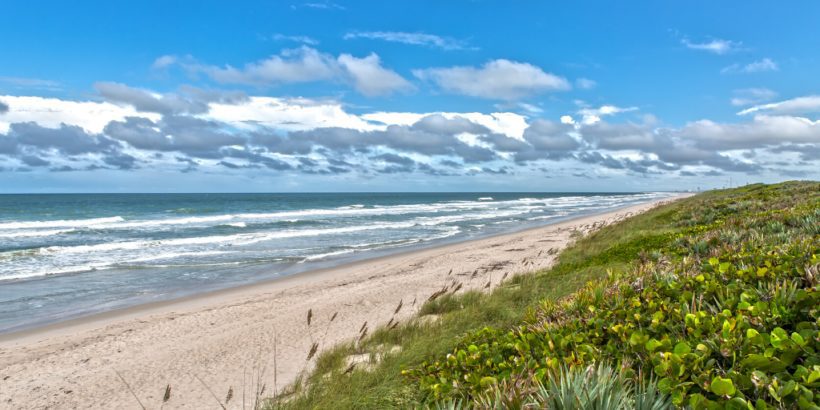Many of us are struggling with places that we can get out and visit while we try to implement social distancing.
This is especially true for us travelers who are used to getting out and exploring on the regular.
One of the few places that is still very attractive to visit is the beach.
It’s vast, open, and beautiful which would seem like a perfect place to be right now.
But the beach could actually be much less safe to visit than you think.
And it’s not because of crowds or getting close to other beach goers or swimmers.
It’s actually a much more unexpected and invisible threat: the air.
Kim Prather, a leading atmospheric chemist at the Scripps Institution of Oceanography, believes the beach is one of the most dangerous places to be right now.
The reason is that the ocean along the beach can be a source of bacteria and viruses, including possibly the coronavirus.
A lot of people smartly avoid beaches or at least the water and beaches within three days of heavy rain because that is when bacteria and other pathogens are washed off roads and right into the ocean.
But sewage entering the ocean also can be a major risk and it is potentially why the ocean could be a breeding ground for coronavirus.
Prather believes that it is possible that the coronavirus could enter coastal waters via sewage and get transferred back into the air along the coast.
These type of viruses can essentially float on the top of the ocean and when waves roll in they can be thrown up into the air where they linger and could potentially be ingested by swimmers and surfers, or even people walking along the beach.
Charles Gerba, a professor of microbiology at the University of Arizona, studies coronaviruses in wastewater and stated that viruses like these can be found to survive two or three days in raw sewage.
He’s also confirmed that the coronavirus can end up in sewage though more than 90% of the coronavirus is removed by typical waste water treatment.
They still don’t know if the virus is infectious when in sewage, however.
And that’s the big missing link right now.
It’s also worth pointing out that the World Health Organization and CDC have not warned that the virus can be spread by ocean spray or coastal breezes.
So we are still in the early stages when it comes to learning about this potential threat.
This would present the biggest risk at locations where there is subpar sewage treatment near rivers and coastal areas, but there are several locations in the US where this is the case. And I’m sure there are many more around the world as well.
Personally, this threat doesn’t scare me that much and I would honestly be more worried about just being in coastal waters contaminated by sewage than I would about catching the coronavirus from air particles.
But as a traveler, I think it’s worth knowing about these things and being mindful about potential threats out there.
The more you know the better.
Daniel Gillaspia is the Founder of UponArriving.com and the credit card app, WalletFlo. He is a former attorney turned travel expert covering destinations along with TSA, airline, and hotel policies. Since 2014, his content has been featured in publications such as National Geographic, Smithsonian Magazine, and CNBC. Read my bio.

